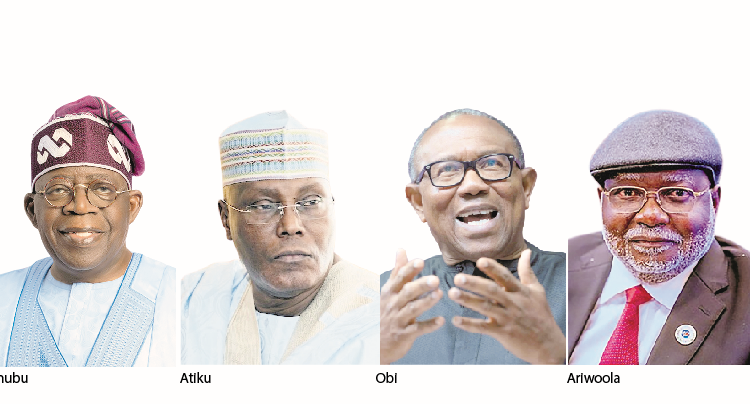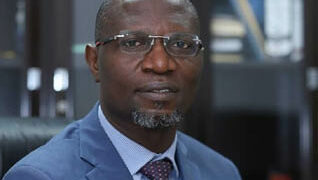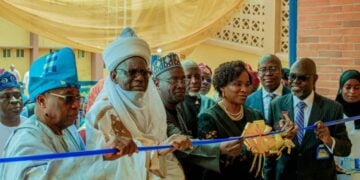There is a hint of uncertainty in the Nigerian polity as the Supreme Court today decides whether President Bola Tinubu will retain his position as the president of the country.
The court will this morning deliver judgement in the appeals filed by the presidential candidate of the People’s Democratic Party (PDP), Atiku Abubakar, and that of his counterpart in Labour Party (LP), Peter Obi, challenging Tinubu’s election.
Atiku and Obi are challenging the declaration of President Tinubu of the All Progressives Congress (APC) as the winner of the February 25 presidential election by the Independent National Electoral Commission (INEC).
They both filed separate appeals at the apex court challenging the judgement of the Presidential Election Petitions Tribunal (PEPT) which had dismissed their petitions and affirmed Tinubu’s electoral victory.
On October 23, 2023, a seven-member panel of the Supreme Court justices, led by Justice Inyang Okoro, reserved judgement in the case after parties in the appeal adopted their briefs of arguments.
Atiku is seeking the nullification of Tinubu’s electoral victory at the apex court for allegedly presenting forged academic certificates to INEC to contest the presidential election.
During the hearing of the petition, Chief Chris Uche (SAN), who led the legal team of Atiku and PDP, informed the court of an interlocutory application seeking the leave of the court to present fresh evidence in the appeal.
The fresh evidence Atiku sought to tender are the academic records of Tinubu which were handed over to him by the Chicago State University (CSU) on October 2, 2023.
The 32-page document was released to the former vice president on the orders of Judge Nancy Maldonado of the District Court of Illinois, Eastern Division, Illinois, United States of America.
The US court had ordered the CSU to release the said documents to Atiku despite Tinubu’s objection because the court was convinced that it would help Atiku establish his allegation of forgery and lying on oath against Tinubu.
During the proceedings on Monday, one of the Justices on the panel, Justice Emmanuel Agim, told Atiku’s lead counsel that the deposition which he sought to tender as evidence was done in the chamber of lawyer to Atiku and not in the court as required by law.
Seeking further clarification, Justice Agim said, “I expected the College (CSU) to write disclaiming the documents in dispute. Does a stenographer have the legal authority to administer an oath? We are dealing with a matter that touches on the national interest of this country.”
In his response, Uche submitted that the legal system in the United States was different from that of the English legal system which is practised in Nigeria and confirmed that the depositions were made in the law chambers of Atiku’s American lawyer, with representation by Tinubu’s American lawyers.
He insisted that there was no conflict or dispute over the legality of the depositions.
Tinubu, through his team of lawyers, raised an objection to the admissibility of the depositions, saying such depositions have to be adopted by the individual that deposed to it before it can be admitted as evidence before a court.
In response, Uche argued that such is not the practice in foreign proceedings and clarified that the depositions were not based on a court order to clarify the discrepancies observed in the communication by the Chicago State University.
The presiding justice, Justice Okoro, further observed that the issue of conflicting documents from the same institution is a serious criminal act which ought to be proved beyond reasonable doubt.
After hearing the appellants’ motion to admit fresh evidence and the objections by the respondents, the court directed parties to adopt their briefs of arguments on the substantive appeal and thereafter reserved judgement to a date that would be communicated to parties.
In the same vein, the apex court also reserved judgement in the joint appeal filed by Obi and the Labour Party challenging the victory of Tinubu at the February 25 presidential election.
The court announced the reservation of the judgment after parties adopted their written addresses in the appeal.
Also, at the hearing of the case, the court dismissed the appeal brought before it by the Allied Peoples Movement (APM) against the judgement of the Presidential Election Petition Court (PEPC) delivered on September 6.
The court dismissed the appeal following an application for its withdrawal by APM’s lead counsel, Chukwuma-Machukwu Ume (SAN).
APM had argued that Tinubu was not qualified to contest the February 25 presidential election, having violated the provisions of Section 142 (1) of the Constitution of Federal Republic of Nigeria 1999 (as amended).
The party had also prayed for a declaration that the return of Tinubu by the INEC as the president-elect is null, void of no legal effect whatsoever.
The Presidential Election Petition Tribunal (PEPT) sitting at the Court of Appeal had on September 6 dismissed the petition of Atiku and Obi for being incompetent.
Not satisfied with the judgement, the two presidential candidates approached the apex court with an appeal, asking it to set aside the judgement of the PEPT and nullify Tinubu’s election.
Police beef up security in Abuja
Meanwhile, reacting to LEADERSHIP inquiry, FCT Police PRO, SP Josephine Adeh said the commissioner of Police, FCT has deployed massively to ensure that there is no breakdown of laws and order during and after the judgement.





